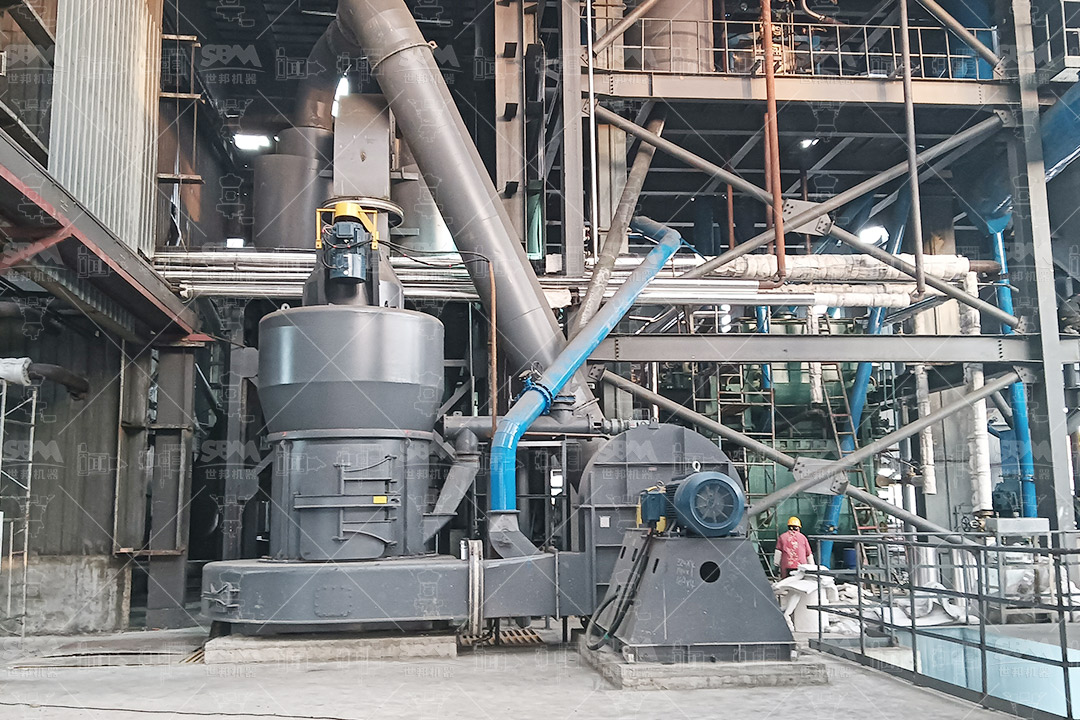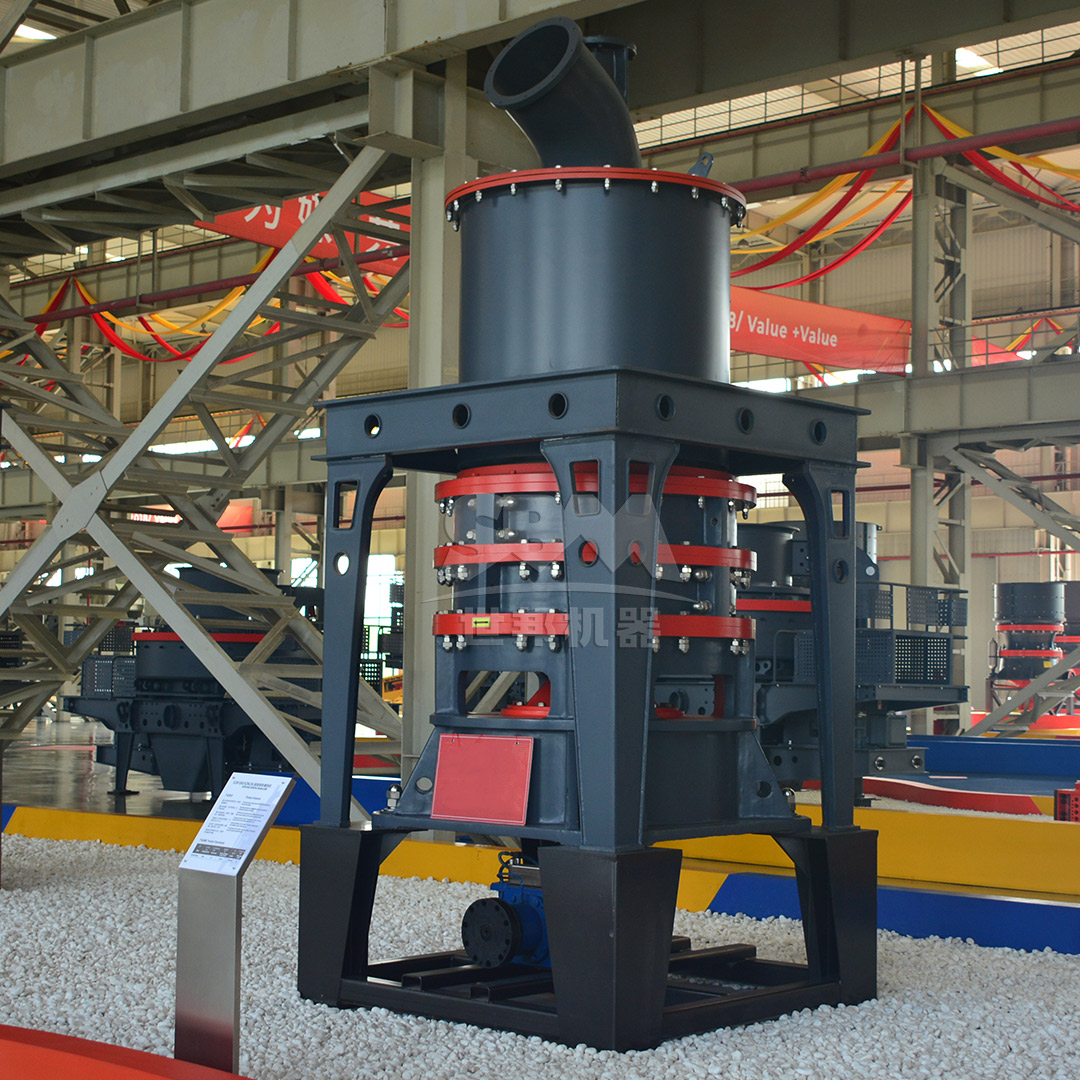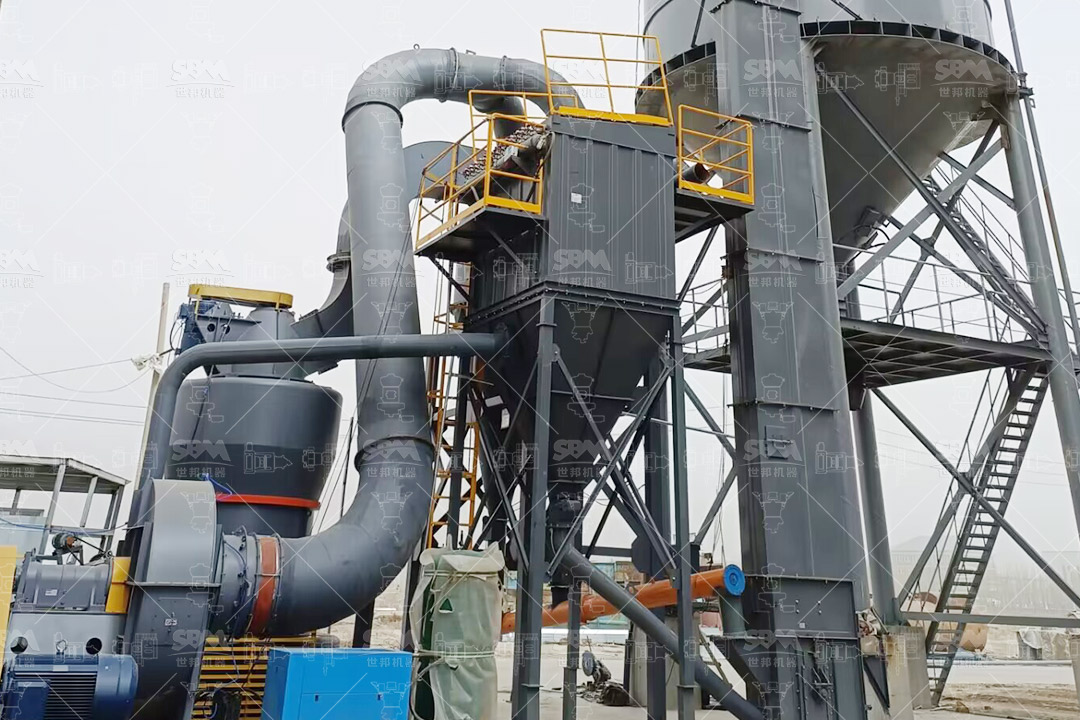Ultrafine grinding technology has revolutionized powder processing across numerous industries, from pharmaceuticals and cosmetics to construction materials and advanced ceramics. The ability to produce consistently fine powders with precise particle size distributions is critical for product performance and quality. However, raw materials vary significantly in their physical and chemical properties, presenting unique challenges for grinding operations. This article explores how modern ultrafine mills are engineered to handle diverse material characteristics while maintaining efficiency, product quality, and operational reliability.
Before examining how ultrafine mills process different materials, it’s essential to understand the key material properties that influence grinding performance:
| Material Property | Impact on Grinding | Examples |
|---|---|---|
| Hardness | Determines wear on grinding elements and energy consumption | Quartz (high), Talc (low) |
| Moisture Content | Affects flowability and can cause clogging | Clay (high), Calcium carbonate (low) |
| Abrasiveness | Influences component wear rates | Silica sand (high), Gypsum (low) |
| Brittleness | Affects fracture mechanics and particle size distribution | Glass (high), Plastic (low) |
| Chemical Reactivity | Determines material compatibility with mill components | Acidic materials require special linings |
Modern ultrafine mills incorporate sophisticated engineering solutions to accommodate these varying material properties while maintaining consistent output quality and operational efficiency.
Contemporary ultrafine mills employ multiple grinding principles to handle different materials effectively:
Compression Grinding: Ideal for hard, brittle materials like quartz and feldspar, this method applies gradual pressure to fracture particles along their natural cleavage planes. The controlled compression minimizes heat generation and preserves material properties.
Impact Grinding: Suitable for medium-hard materials with some elasticity, impact grinding uses high-speed rotating elements to shatter particles through kinetic energy transfer. This method works well for materials like calcium carbonate and certain plastics.
Shear and Attrition: Soft, fibrous, or heat-sensitive materials benefit from shear forces that tear particles apart rather than fracturing them. This approach generates less heat and is ideal for materials like talc, clay, and organic compounds.
Most advanced mills combine these mechanisms to optimize performance across a wide range of materials, automatically adjusting operational parameters based on material characteristics.

Hard and Abrasive Materials: Materials like quartz, zircon sand, and fused alumina present significant challenges due to their extreme hardness and abrasiveness. For these applications, mills require specialized wear-resistant components. The SCM Ultrafine Mill addresses these challenges through its innovative design featuring special material roller wheels and grinding rings that offer extended service life – typically several times longer than conventional components. The mill’s unique bearing-free screw grinding chamber ensures stable operation even when processing highly abrasive materials, while maintaining consistent output quality between 325-2500 mesh (D97≤5μm).
Soft and Heat-Sensitive Materials: Materials such as talc, gypsum, and certain polymers require gentle processing to prevent degradation and preserve their inherent properties. For these applications, controlled grinding forces and efficient cooling systems are essential. The vertical turbine classifier in advanced mills enables precise particle size control without excessive mechanical stress, while optimized airflow provides effective cooling throughout the grinding process.
Moisture-Containing Materials: Materials with inherent moisture, such as clay or certain mineral ores, can present flowability challenges and potential clogging issues. Modern mills incorporate specialized feeding systems and optimized internal geometries to handle these materials effectively. Additionally, integrated drying capabilities allow simultaneous grinding and moisture reduction, streamlining the processing of damp raw materials.
Fibrous and Ductile Materials: Organic materials, certain polymers, and fibrous substances require specialized cutting and shearing actions rather than conventional impact grinding. Advanced mills address this need through customized grinding element geometries and optimized operational parameters that effectively process these challenging materials.
Our SCM Series Ultrafine Mill represents the pinnacle of grinding technology, specifically engineered to handle the widest possible range of raw materials. With an input size of ≤20mm and output fineness ranging from 325-2500 mesh (D97≤5μm), this mill series delivers exceptional performance across diverse applications.
The technological advantages of the SCM Series make it particularly suited for varied material processing:
| Feature | Benefit for Material Processing | Applications |
|---|---|---|
| High-Efficiency Classification | Vertical turbine classifier ensures precise particle size control | Pharmaceuticals, Fine ceramics |
| Durable Design | Special material components withstand abrasive materials | Quartz, Zircon sand |
| Energy Efficiency | 30% lower energy consumption compared to jet mills | Large-scale mineral processing |
| Environmental Compliance | Pulse dust collection exceeds international standards | Toxic materials, Food products |
With capacity ranging from 0.5-25 tons per hour depending on model selection, the SCM Series offers scalability from laboratory research to full-scale production. The intelligent control system automatically adjusts operational parameters based on material characteristics, ensuring optimal performance across different raw materials.

For applications requiring coarser grinding or higher throughput capacities, our MTW Series Trapezium Mill provides robust performance across a broad spectrum of materials. With an input size of ≤50mm and output fineness from 30-325 mesh (down to 0.038mm), this mill series handles everything from soft minerals to moderately hard ores.
Key features that enhance material processing versatility include:
Anti-Wear Shovel Design: The combined shovel blades significantly reduce maintenance costs while the curved design extends roller service life, making the mill ideal for abrasive materials.
Optimized Air Duct: The弧形风道设计 reduces airflow energy loss and improves transmission efficiency, with high-strength guard plates protecting the air duct working surface.
Integrated Gear Drive: The bevel gear integrated transmission achieves 98% transmission efficiency while saving space and reducing installation costs.
With capacity ranging from 3-45 tons per hour across different models, the MTW Series offers substantial processing power for medium to large-scale operations. The mill’s working principle – where the main motor drives the grinding roller to revolve around the central axis while rotating itself to generate centrifugal force – ensures efficient crushing of various materials through extrusion forces, with the classification system precisely controlling final product size.
Modern ultrafine mills incorporate sophisticated control systems that automatically adjust operational parameters based on material characteristics. These systems monitor key indicators such as motor load, grinding pressure, and classifier speed, making real-time adjustments to optimize performance for different materials.
For instance, when processing hard, abrasive materials, the system may reduce feed rates and increase grinding pressure to maintain product quality while protecting mill components. Conversely, when handling soft, heat-sensitive materials, the control system might increase airflow for cooling while reducing grinding intensity.
This adaptive capability ensures consistent product quality regardless of variations in raw material properties, significantly reducing the need for operator intervention and minimizing production disruptions during material changes.
Calcium Carbonate Processing: Both the SCM and MTW series mills excel at processing calcium carbonate across various fineness requirements. For fine-ground products (600-800 mesh), the MTW Series provides efficient processing with excellent particle size distribution. For ultra-fine applications (1250-2500 mesh), the SCM Series delivers superior performance with its advanced classification system.
Talc and Gypsum Grinding: These soft minerals benefit from the gentle grinding action and efficient classification of modern ultrafine mills. The precise temperature control prevents degradation of material properties, while the high-efficiency classifiers ensure consistent product quality.
Quartz and Feldspar Processing: For these hard, abrasive materials, the wear-resistant components of advanced mills ensure extended service life while maintaining production efficiency. The robust construction and optimized grinding mechanics handle these challenging materials effectively.

The evolution of ultrafine grinding technology continues to focus on enhancing material processing capabilities. Emerging trends include:
AI-Driven Optimization: Advanced artificial intelligence systems that learn from operational data to continuously optimize mill performance for specific materials, predicting maintenance needs and preventing unscheduled downtime.
Hybrid Grinding Systems: Combining multiple grinding technologies in a single platform to handle increasingly diverse material portfolios without equipment changes.
Enhanced Material Characterization: Integration of real-time material analysis systems that automatically adjust mill parameters based on incoming material properties.
Sustainable Processing: Development of grinding technologies that minimize energy consumption while maximizing material utilization, supporting circular economy initiatives.
The ability of modern ultrafine mills to handle diverse raw materials stems from sophisticated engineering solutions that address the unique challenges presented by different material properties. Through advanced grinding mechanisms, adaptive control systems, and specialized component designs, contemporary grinding technology delivers consistent performance across a wide spectrum of applications.
Our SCM Series Ultrafine Mill and MTW Series Trapezium Mill represent the cutting edge of this technology, offering unparalleled versatility in material processing. From the finest pharmaceutical powders to robust mineral applications, these mills provide the performance, reliability, and efficiency demanded by today’s competitive industrial landscape.
As material science continues to advance and new applications emerge, ultrafine grinding technology will undoubtedly evolve to meet these challenges, further expanding the boundaries of what’s possible in powder processing.